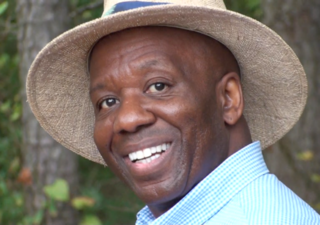
Sheila Jackson Lee was an American lawyer and politician who was the U.S. representative for Texas's 18th congressional district, from 1995 until her death in 2024. The district includes most of central Houston. She was a member of the Democratic Party and served as an at-large member of the Houston City Council before being elected to the House. She was also co-dean of Texas's congressional delegation.

The New Orleans Jazz & Heritage Festival is an annual celebration of local music and culture held at the Fair Grounds Race Course in New Orleans, Louisiana. Jazz Fest attracts thousands of visitors to New Orleans each year. The New Orleans Jazz & Heritage Festival and Foundation Inc., as it is officially named, was established in 1970 as a 501(c)(3) nonprofit organization (NPO). The Foundation is the original organizer of the New Orleans Jazz & Heritage Festival presented by Shell Oil Company, a corporate financial sponsor. The Foundation was established primarily to redistribute the funds generated by Jazz Fest into the local community. As an NPO, their mission further states that the Foundation "promotes, preserves, perpetuates and encourages the music, culture and heritage of communities in Louisiana through festivals, programs and other cultural, educational, civic and economic activities". The founders of the organization included pianist and promoter George Wein, producer Quint Davis and the late Allison Miner.

The Wilderness Act of 1964 is a federal land management statute meant to protect federal wilderness and to create a formal mechanism for designating wilderness. It was written by Howard Zahniser of The Wilderness Society. After over sixty drafts and eight years of work, President Lyndon B. Johnson signed the Wilderness Act into law on September 3, 1964, creating the legal definition of wilderness in the United States and protecting 9.1 million acres of federal land.
Native American Day is a holiday observed in several US states in celebration of Native American culture. In California and Nevada, the holiday is designated on the fourth Friday of September, whereas in South Dakota and Wisconsin, it falls on the second Monday of October. Within each of these states, Native American Day honors the cultural contributions of Native American communities to the respective state's history, as well as to the overall country. The state of Washington celebrates Native American Heritage Day on the Friday immediately following the fourth Thursday in November. The state of Tennessee observes a similar American Indian Day each year on the fourth Monday of September. President George W. Bush signed into law legislation introduced by Congressman Joe Baca (D-Calif.), to designate the Friday after Thanksgiving as Native American Heritage Day.

The Malay Heritage Centre is a cultural centre and museum located at Sultan Gate off Beach Road in Kampong Glam, Singapore. Its primary focus is to showcase the heritage and history of Malay Singaporeans.

The National Commission for Culture and the Arts of the Philippines is the official government agency for culture in the Philippines. It is the overall policy making body, coordinating, and grants giving agency for the preservation, development and promotion of Philippine arts and culture; an executing agency for the policies it formulates; and task to administering the National Endowment Fund for Culture and the Arts (NEFCA) – fund exclusively for the implementation of culture and arts programs and projects.
Asian American, Native Hawaiian and Pacific Islander Heritage Month is observed in the United States during the month of May, and recognizes the contributions and influence of Asian Americans, Native Hawaiians and other Pacific Islander Americans to the history, culture, and achievements of the United States.
Filipino American History Month (FAHM) is celebrated in the United States during the month of October. In 1991, Filipino American National Historical Society (FANHS) board of trustees proposed the first annual Filipino American History Month to commence in October 1992.

Founded in 1958, the Alvin Ailey American Dance Theater (AAADT) is the largest modern dance company in the United States. Based in New York City, the company was founded by Presidential Medal of Freedom recipient Alvin Ailey (1931-1989), a noted choreographer and dancer. The Alvin Ailey Dance Foundation, which includes AAADT and Ailey II, the Ailey School, Ailey Extension, AileyCamp, and other operations, is housed in the 87,000 square-foot Joan Weill Center for Dance, one of the largest buildings dedicated exclusively to dance in the United States. AAADT is recognized as a vital American cultural ambassador, and has performed for diverse audiences in more than seventy countries around the world.
National Bourbon Heritage Month is an observance in the United States that calls for celebration of bourbon as America's "Native Spirit" during the month of September. On August 2, 2007, the US Senate declared September 2007 as "National Bourbon Heritage Month." The bill, sponsored by Republican Senator Jim Bunning of Kentucky, passed by unanimous consent. The resolution calls for consumers who enjoy bourbon to do so responsibly and in moderation. The bill reinforces the 1964 concurrent resolution of Congress that "recogniz[ed] Bourbon whiskey as a distinctive product of the United States."

The 90th Anniversary of the Latvian Republic was celebrated in 2008. Proclaimed on November 18, 1918, the Latvian republic asserted independence from Imperial Russia. International de jure recognition was obtained on January 26, 1921.

Jewish American Heritage Month (JAHM) is an annual recognition and celebration of American Jews' achievements and contributions to the United States of America during the month of May.
Black Music Appreciation Month is an annual celebration of African-American music in the United States. It was initiated as Black Music Month by President Jimmy Carter, who, on June 7, 1979, decreed that June would be the month of Black music. After the announcement by Carter, the bill finally passed in 2000 when activist Dyana Williams' 10 years of effort persuaded Congress. Williams played an essential role in the creation and solidification of Black Music Month, along with Kenneth Gamble and Ed Wright.
National School Choice Week was founded in 2011 to promote the concept of all forms of school choice: district schools, district magnet schools, charter schools, private schools, and home schooling. The event, which takes place the last week of January each year, is sponsored by the National School Choice Awareness Foundation.

Calvin Earl is an American singer, musician, storyteller and documentary film maker specializing in the history of African American Spirituals. His passion for the preservation of the spirituals led him to lobby for the introduction of twin resolutions in the United States Congress in 2007, to honor American slaves for their contribution to the American nation and recognize the African American Spiritual as a National Treasure. He is referred to in the legislation as a “noted performer & educator of the African American Spirituals". Because of his successful efforts in the passage of the legislation, Earl became affectionately known as the "Ambassador of the African American Spirituals". He has recorded two albums of spirituals, including Gratitude which is sold at American historical sites including Monticello, Mount Vernon, Jamestown, and the Jimmy Carter National Historic Site in Plains, Georgia.

The Texas Band of Yaqui Indians is a cultural heritage organization for individuals who identify as descendants of Yaqui people, and are dedicated to cultural and ethnic awareness of the Yaqui. The organization is headquartered in Lubbock, Texas.
National Whistleblower Appreciation Day is an annual recognition of whistleblowers whose actions have protected the American people from fraud or malfeasance.
National Arab American Heritage Month (NAAHM) takes place in April. It celebrates the Arab American heritage and culture and pays tribute to the contributions of Arab Americans and Arabic-speaking Americans.

Women Veterans Day is observed on June 12 in the United States, a date chosen to mark the anniversary of the Women's Armed Services Integration Act. The date is not recognized nationally, but is recognized by a number of states, either through legislation or proclamation, and organizations. The stated goal of Women Veterans Day varies somewhat by state, but can generally be acknowledged as an effort to honor the work of women in the United States Armed Forces and recognize the unique challenges that they have faced. The date was first recognized when the New York State Assembly declared June 12, 2008, to be Women Veterans’ Recognition Day.
Jeanie Jew is a fourth generation Chinese American advocate who played an important role in the creation of Asian American and Pacific Islander Heritage Month. She was born to a family that worked on the Transcontinental Railroad.











